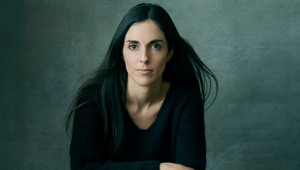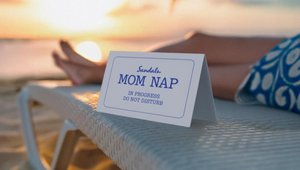
LIA Creative Conversations: Mark Tutssel

Leo Burnett’s CCO Mark Tutssel was in Las Vegas last week to lead the judging on the LIA 2012 Film Jury. LBB caught up with him to pick his brains on the judging process, why he values awards shows, and what we can learn from the creative leaders of tomorrow.
LBB> Why was it important for you to take part in this year’s LIA judging?
MT> I think award shows are incredibly important for the industry. They can be polarising to certain people but they serve a purpose and act as a barometer for the health of our industry. More importantly they are beds of inspiration – they’re not only about evaluation of work. We’re not only here to say ‘this is the best we’ve got’, we’re here to say ‘this is the best we’ve got because…’. How does this piece of work help us look at something in a fresh new way. I think it’s a breeding ground for ideas. For me it’s a chance to recharge myself, to immerse myself totally in ‘communication’ in every single channel and to extract the best of the best. That then powers me to produce even better work, more courageous work. The work that wins at shows is brave, bold, audacious – ideas that really defy the status quo and point out a direction for the future.
I am a great supporter of certain shows, but I think there are far too many in the industry. Every show has to play a role. Each of the shows has slightly different reasons for being. D&AD is renowned for its difficulty; Cannes, of course is the world stage and is, absolutely, the clients’ show; and the London International is a show that has pedigree. It’s run impeccably well by people who understand the industry and quality of people within it. One thing I have noticed about this show is its ability to choose juries, to curate a jury around a particular channel.
LBB> How has the judging been this week?
MT> It’s been fun. There has been a lot of work to wade through, but the debate was intelligent. When you’re in a room with people you respect and who are great thinkers, it’s a real privilege. I think the great thing about a jury is its focus. You shut your iPhone off and you debate the merits of the work. You have to dismantle an idea and put it back together again. It’s not just a case of pressing a button. It’s a great education for everybody and I’m always richer for the experience. You meet smart people – a lot smarter than I am... You talk with them about the work and you realise how subjective it all is. It’s great when people have a strong point of view and you listen and absorb the thinking behind it.
LBB> So there’s a real educational merit to being on a jury?
MT> Totally. I remember being on a jury once with Jeff Goodby. I was talking to him at dinner and both of us said, at the same moment, it is pure education for each and everyone one of us. If I leave and I haven’t learned something, I feel like I’ve failed myself. I want to learn the little things that make ideas great. We’re sieving for diamonds. If you look at our industry, how many pieces of work do we create a year? And in a show we’ll see two per cent of that, and then we whittle that two per cent down to 0.0002 per cent. We’re finding that grain of sand on a beach and saying that’s the quality we’re looking for. If each piece of sand was that quality, how amazing would we be.
It comes back to the curator, assembling together people who can bring something to the table. They’re not looking for the same type of people. They’re looking for a group who all have a point of view, a skill set and a love of ideas. I think the thing that has stood out for me this year is that these people love, genuinely love and are passionate about ideas. It’s a sheer joy to discuss the merits.
LBB> It’s something you’re also involved with in-house at Leo Burnett, isn’t it?
MT> Leo Burnett has a rich history in terms of our Global Product Committee, which I chair four times a year. It’s a mini-award show where we sit down and evaluate the quality of the work we’re producing – Donald Gunn started it many, many years ago. So I get to see every single piece of work that leaves the agency, regardless of geography. I then report back on the idea, the thinking behind it, how to make it better. If we’re working on a big brand like Samsung, McDonald’s or P&G or Kellogg’s, we can share a better class of thinking with everyone within our community. It’s a good way to bring everybody together and getting them to focus on the quality of the thinking, the purpose of the brand communication, the quality of the idea itself and of course the ‘X factor’ of the execution and craft of the idea. It’s a relentless focus on the quality of work. That’s why Leo Burnett has more offices contributing to the global quality of its work than any other network. It’s because of the Global Product Committee.
LBB> What do you think about the LIA bringing over a selection of young creatives for the ‘Creative Conversations’?
MT> I think it’s an inspired idea. I think this industry lives and dies on the infusion of fresh new blood. For a show to invest in tomorrow’s generation is simply amazing. It should be admired and applauded. The opportunity to come to a place like Vegas and be around some of the world’s greatest creative is an experience that they will treasure for a very long time. The opportunity to talk about how work works – how ideas amplify themselves and connect with people, is an education that they will never have been afforded in their lives before.
What I’d like to see in the future is for them to lecture us. Let’s reverse the tables. They can bring new ideas and challenge the status quo. They are wired in a different way. We talk about digital and new tools, but for them it’s a way of life. I remember coming home once and my son was lying on the floor with his laptop open, playing a game against a guy in Sao Paolo, he was messaging a friend down the side of his screen, he was watching Manchester United on the TV, he was texting somebody, he had his iPod on and I stupidly asked him ‘what are you doing?’. He gave me a filthy look and said ‘my maths homework’. That’s the generation we’re talking to. That sort of new generation of people who communicate in such a different way – we can learn so much from them.
At the end of the day this industry can be distilled into two things: people and behaviour. All creative ideas are concepts that change behaviour. We have to find ideas that have the ability to change the way people feel and ideas that create human value; great icon brands that lodge themselves in the corner of your brain and live there in a different way. People’s expectations are so much higher. They completely understand, they are versed in communication. We can’t advertise any longer, we can’t sell – and neither should we.
When you go back to traditional communication you had a captive audience, now ideas are totally different. People want to take part in an idea. I think we’re looking for participation ideas rather than telling ideas and that require a completely different skill set. The best media director in the world is ‘the people’.
LBB> And what else have you learned this week?
MT> I think the other thing that has become abundantly clear to me this week is that case study films are the cancer of the industry. They’re ridiculous. Judges are here to judge. They’re here to find ideas that they can hold up and be inspired by. They’re smart, experienced, intelligent and they’re brought to a place like Vegas for their point of view, so please don’t sell to the judges. Allow judges to judge. I don’t care if the blogosphere went ballistic, tweets, Facebook likes… all of it is nonsense that is spewed out to mask what are, nine times out of ten, average ideas. Get rid of all that clutter. Present the idea in a simple intelligent fashion.
LBB> Has the quality of work been good this year?
MT> Not really, but when you look en masse, it never is. Yesterday the shortlist was absolutely inspirational and the work that eventually won is world class. I think this year we had three or four pieces that would have won a Grand Prix any other year.















